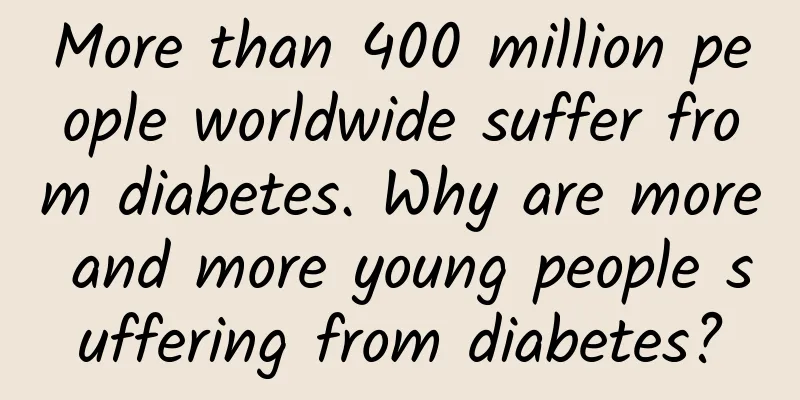No wonder doctors don’t allow us to eat sugar, sugar has a huge impact on tooth decay!

|
This is the 3989th article of Da Yi Xiao Hu Tooth decay is a common oral disease and is well known to the public. When it comes to ways to prevent tooth decay, the most commonly mentioned method is "eat less sugar or no sugar". Sugars related to tooth decay are essentially fermentable carbohydrates, which can be fermented by cariogenic bacteria, thereby producing acidic substances and corroding teeth. Therefore, it is generally believed that the significance of fermentable carbohydrates to the occurrence of tooth decay lies mainly in their ability to cooperate with cariogenic bacteria to produce acid. But in fact, fermentable carbohydrates can also have an impact on cariogenic bacteria. Image source: Wikipedia Sugar-loving cariogenic bacteria Many people in our daily life claim to be "dessert addicts", but caries-causing bacteria are senior "dessert addicts" who cannot live without sugar. Fermentable carbohydrates are not only a delicacy for cariogenic bacteria, but also have certain effects on cariogenic bacteria, specifically: ① By cooperating with cariogenic bacteria to produce acid, changing the oral environment, it can selectively retain acid-resistant bacteria that are more adapted to acid-resistant and acid-producing environments; ② It can provide substrates for the glucosyltransferase of cariogenic bacteria, thereby synthesizing exopolysaccharides. Dental plaque rich in exopolysaccharides not only helps cariogenic bacteria adhere tightly to the tooth surface, but also limits the spread of cariogenic bacteria, thereby prolonging the process of cariogenic bacteria cooperating with fermentable carbohydrates to produce acid; ③ Dental plaque rich in exopolysaccharides can also provide a protective barrier for cariogenic bacteria from being "harmed" by antimicrobial treatment. In short, fermentable carbohydrates are of great significance to the survival and growth of cariogenic bacteria in the mouth. For cariogenic bacteria, frequent exposure to sugary foods is like adding fuel to the fire. Sugar substitutes are effective in fighting caries-causing bacteria Sugar substitutes, also known as sugar substitutes, include sugar alcohols, which are an important category. Their anti-caries mechanism is to reduce the production of acidic substances and extracellular polysaccharides as well as the accumulation of dental plaque. Tooth decay is an infectious disease characterized by an imbalance of oral microbiota caused by an increase in cariogenic bacteria. Frequent intake of fermentable carbohydrates can induce and aggravate the imbalance of oral microbiota, while sugar alcohols can act as microecological regulators to help restore the balance of oral microbiota. Studies have shown that topical xylitol at a dosage of more than 4 g/d can have a moderate anti-caries effect, while short-term (within half a year) xylitol dosage of more than 6 g/d can reduce the level of oral mutans streptococci (the main cariogenic bacteria). Erythritol may have a better anti-caries effect, fewer side effects, and is more suitable for patients with cardiovascular disease and diabetes. Xylitol also has a unique anti-caries effect, which is that it can prevent the mother-to-child transmission of Streptococcus mutans, thereby having a long-term impact on the child’s oral microbiome and anti-caries effect. Xylitol (Source: Wikipedia) Although sugar substitutes are good, don’t be too greedy Although modern medical research has confirmed that sugar alcohols are beneficial to oral health and overall health, excessive intake of sugar alcohols can still cause health problems. The most common problem is gastrointestinal discomfort, such as diarrhea. An intake of 100 g/d for adults or 45 g/d for children can cause diarrhea. When sugar alcohols are used as ingredients in oral care products, they generally do not cause health problems due to limited usage and local application, so there is no need to worry. The impact of sugar on tooth decay once again confirms the possibility that "diseases come from the mouth". For maintaining health, it is very important to "control your mouth". Author: Shanghai Health and Health Development Research Center rich |
<<: Postpartum recovery is slow
>>: Correctly relieve dry eyes, 80% of people do it wrong
Recommend
Do I need to hold my urine for the 12-week prenatal checkup?
We all know that pregnant women can start prenata...
Menstruation delayed by 1 day
Delayed menstruation is very bad for women's ...
What does early pregnancy biochemistry mean?
What we often call early biochemical pregnancy ac...
How do girls get body odor?
Through investigation, it was found that the inci...
What does a normal uterus look like?
The normal uterus is inverted pear-shaped, locate...
Should women wear underwear when sleeping?
We all know that bras are exclusive clothing for ...
After my mother got Alzheimer's disease, I felt like I had a new lease of life
If her mother had not developed Alzheimer's d...
Can I get pregnant while breastfeeding?
During the breastfeeding period, since menstruati...
There are many pril-type antihypertensive drugs. What are the differences between them and which one is better to choose?
A friend left a message to Huazi, saying that he ...
Causes of brown menstrual discharge
Brown vaginal discharge during menstruation is a ...
Is Chinese medicine useful for polycystic ovary?
For polycystic ovaries, if they cannot be treated...
Will my breasts get bigger if I massage them often?
Many women have small breasts, and those with ful...
Pictures of uterine polyps falling out
Uterine intrauterine polyps refer to inflammation...
What to do if a woman is a stone woman
In life, there are many women who cannot give bir...









